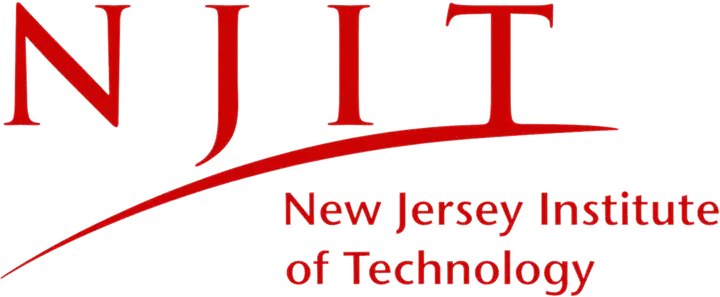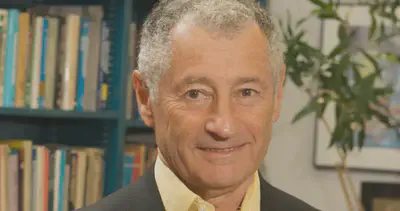Technology VIPs, Including an Internet Pioneer, Visit NJIT for Inspiration

Written by: Evan Koblentz

TTI/Vanguard, a prestigious organization of technology industry executives who meet a few times each year to study and debate emerging innovations, chose to virtually visit New Jersey Institute of Technology this week for their latest intellectual retreat.
The group’s members, through exposure to wide swaths of cutting-edge technology research, advise their clients and employers about what directions to follow for commercialization and investment opportunities.
The visit of 58 thought leaders from academia, corporations and government agencies — including Internet pioneer Leonard Kleinrock — was hosted by NJIT’s Institute for Data Science, which is led by Distinguished Professor David Bader, a TTI/Vanguard member since the mid-2000s. Bader presented on large-scale data analytics, while other Institute faculty presented their own research on brain injuries, COVID-19 biosensors, computer encryption, cyberpsychology/disinformation and system optimization for human interactions.
“TTI/Vanguard’s members include technologists and strategists at the most innovative companies and even governments around the world. Visiting NJIT for their virtual field trip recognizes our research prominence. As New Jersey’s leading tech school, it’s important that we engage with the broader community to solve some of the most pressing real-world grand challenges,” Bader said.
“The data science applications are making societal impacts and economic growth in almost every area,” observed NJIT’s Atam Dhawan, senior vice provost for research.
“It was a great pleasure hosting the TTI/Vanguard field trip featuring some of the collaborative research projects incorporating a spectrum of technologies and data analytics approaches to address high-impact applications,” Dhawan continued. “The strategic growth of the transdisciplinary, translational research enterprise has enabled NJIT to be classified as one of the top polytechnic research universities in the nation with Carnegie R1 research classification. I am sure that the relationship between NJIT and TTI/Vanguard would further facilitate the translation of innovative and breakthrough technologies to market with a positive impact in our lives.”
TTI/Vanguard — originally Technology Transfer Institute, founded in 1976 — is led by Kleinrock, a particularly esteemed technologist and one of the founding fathers of the internet. Kleinrock came up with the mathematical foundations of the internet’s core technology, specifically the idea that computers could make network connections by sending data broken into large numbers of equal-sized chunks, for his doctoral thesis in 1962. Today that’s taken for granted as packet switching. Then on Oct. 29, 1969, his team at UCLA sent the newborn network’s first message, which turned out to be “lo” because “gin” got cut off due to a programming bug in the receiving computer at Stanford Research Institute. He still teaches at UCLA, receiving many honors including the National Medal of Science, along with honorary degrees including one from NJIT in 2016 where he gave a commencement speech on the theme of breaking boundaries.
Kleinrock said his favorite part of this week’s NJIT presentations was the brain injury research from biomedical engineering Distinguished Professor Namas Chandra. “I felt the traumatic brain injury talk was really interesting. The topic is really important, the engineering looked really good,” he said. Another favorite topic was the biosensor work for COVID-19 research by chemistry and environmental science Distinguished Professor Wunmi Sadik. Kleinrock and other TTI/Vanguard officials said COVID-19 was, by necessity, a topic that appeared in their group’s other meetings in 2020. A speaker from Iceland, who works as a Microsoft software developer, told the group earlier this year how to preempt other viruses which might jump from animals to humans and where else they may originate. “If I had my choice now as a young student, I’d probably go into some form of biomedical engineering,” Kleinrock said.
Kleinrock was especially impressed with the work on full homomorphic encryption by professor Kurt Rohloff, a technology that has now reached efficiencies that permit its use in practical applications.
Computer scientists of Kleinrock’s magnitude are often asked for their own future visions. He predicts a resurgence of analog circuitry, especially in the world of quantum computing, which became part of graduate coursework in Ying Wu College of Computing this semester.
For regular users, he’s fond of the makerspace movement and products such as microcontrollers, because they bring back a world where regular people can fix things and build their own things. Today he uses a Macbook Pro, iPad and iPhone, although his own computing background began with room-sized mainframes in the 1950s and eventually led to IBM and Tandy-Radio Shack personal computers in the 1980s.
“A prediction I had a long time ago is the Internet should be invisible just the way electricity is invisible. The Internet is anything but … it’s wonderful but it’s clumsy,” he said.
Kleinrock noted that it’s the unpredictable developments that can be the most exciting. “That’s where I believe technology is heading overall. The infrastructure is being well-handled by sophisticated professionals. The things that we don’t predict well are the applications and the services. They come out of left field, they dominate and surprise us and take over. That’s both wonderful and terrible. We never predicted email or the web or search engines or YouTube or Napster or social networks, and they all suddenly took over.”
Students today can learn from famed Bell Labs engineer Claude Shannon, the father of information theory, who possessed both mathematical brilliance but also physical intuition, Kleinrock said, adding, “I think that combination of experience and thought process is wonderful for creativity and innovation.”
Students wishing to learn more about data science can attend the institute’s lecture series throughout the year.
https://news.njit.edu/technology-vips-including-internet-pioneer-visit-njit-inspiration